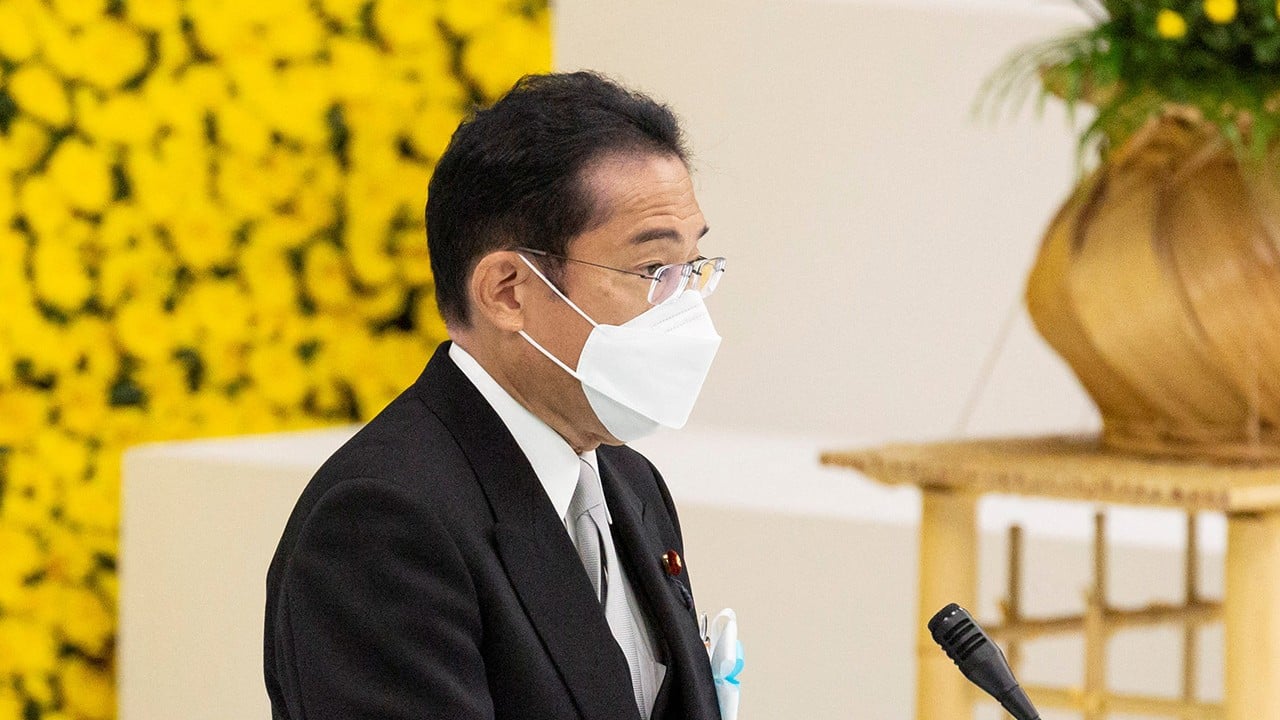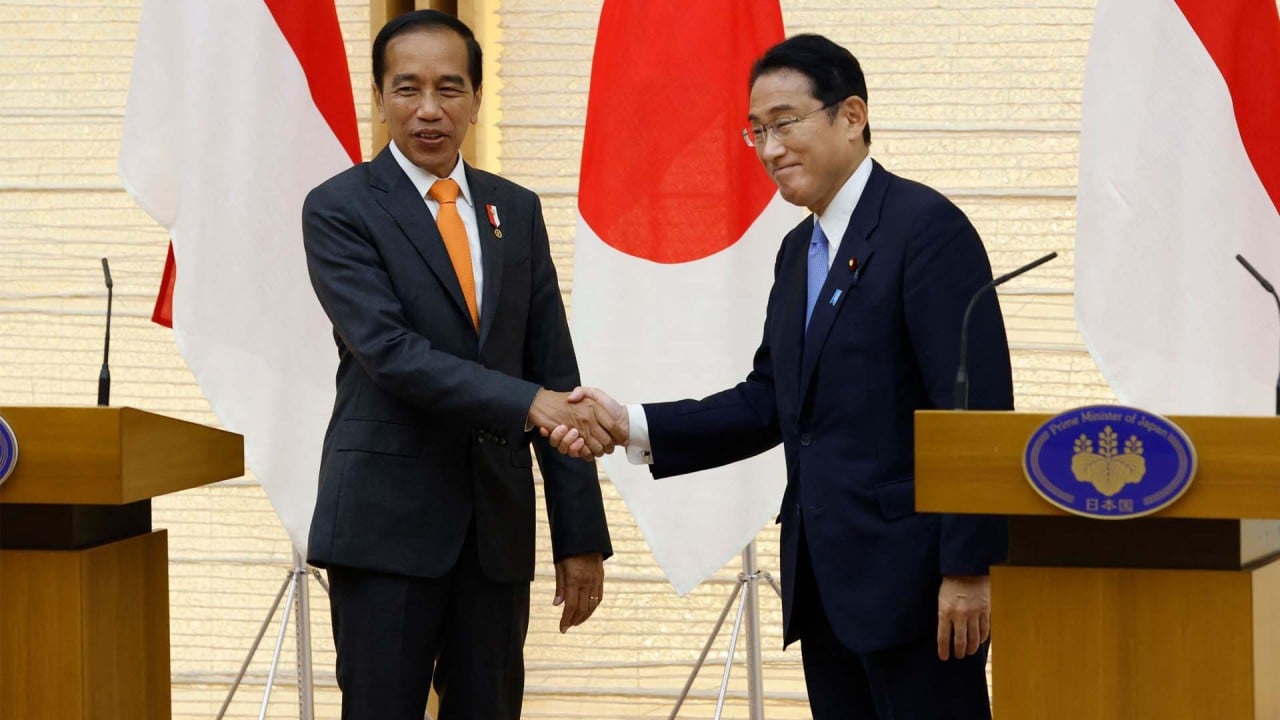
Japan must not decouple economy from China, Foreign Minister Wang Yi says
- Japan must ensure stability, resist US-led efforts to cut supply chains, Wang says
- Tokyo seminar told there should be no ‘ambiguity or backsliding’ on Taiwan issue
During a virtual opening ceremony on Monday for a seminar in the Japanese capital to mark the 50th anniversary of the normalisation of diplomatic ties between the two countries, Wang said Tokyo and Beijing must work to maintain supply chains amid a US-led “decoupling from China” strategy.
Under the four documents signed from 1972 to 2008, Tokyo outlined its one-China policy, recognising that Japan “fully understands and respects” Beijing’s stance that “Taiwan is an inalienable part of the territory of the People’s Republic of China”, the official name of the Chinese mainland.
China and Japan are partners and should not pose a threat to each other, Wang told the seminar, which was also attended virtually by his Japanese counterpart, Yoshimasa Hayashi.
The strategy was initiated by former US president Donald Trump to counter China and has been inherited by President Joe Biden’s administration.
“[China and Japan] have to work together to keep and protect the stability of global supply chains, as well as a fair and open trading investment environment.”
Without referring directly to diplomatic tensions between the two countries, Hayashi said there was a “common goal” for the two East Asian neighbours to build “constructive and stable” bilateral relations through voluntary efforts, Kyodo News reported.
Gao Haikuan, honorary vice-chairman of the Beijing-based China Society of the History of Sino-Japanese Relations, said Wang’s speech reflected the two countries’ mutual mistrust, which would harm the future development of both nations.
“The Taiwan issue is very sensitive to Beijing, and it might create new hatred between the two Asian giants, which have so far failed to resolve historical animosity left over from the second world war,” Gao said.
The Chinese missiles became a “visible sign” for the Japanese public that “China is prepared to attack Japan”, according to Fumiko Sasaki, a specialist in international relations and Asian and Japanese politics at Columbia University in New York.
However, while the incidents had intensified Tokyo’s resolve to strengthen defence ties with Washington, they had also encouraged Japanese political and business leaders to improve communication with their Chinese counterparts to prevent tensions from escalating further, Sasaki added.
“The sense of crisis will compel the Japanese leaders to seek and establish strong communication channels with their counterparts,” she said. “If Beijing wants to lower the tension over Taiwan, it will take the chance and work with Japan to create such channels.”
The Tokyo seminar, which brought together 220 participants from China and Japan, was jointly hosted by the Chinese embassy in Japan and the Keidanren, or Japan Business Federation. Only the opening part of the event was made public, Kyodo reported.



